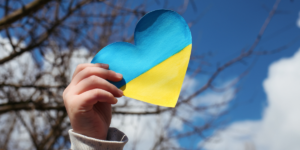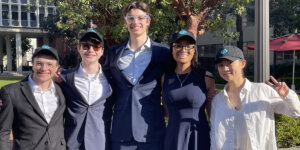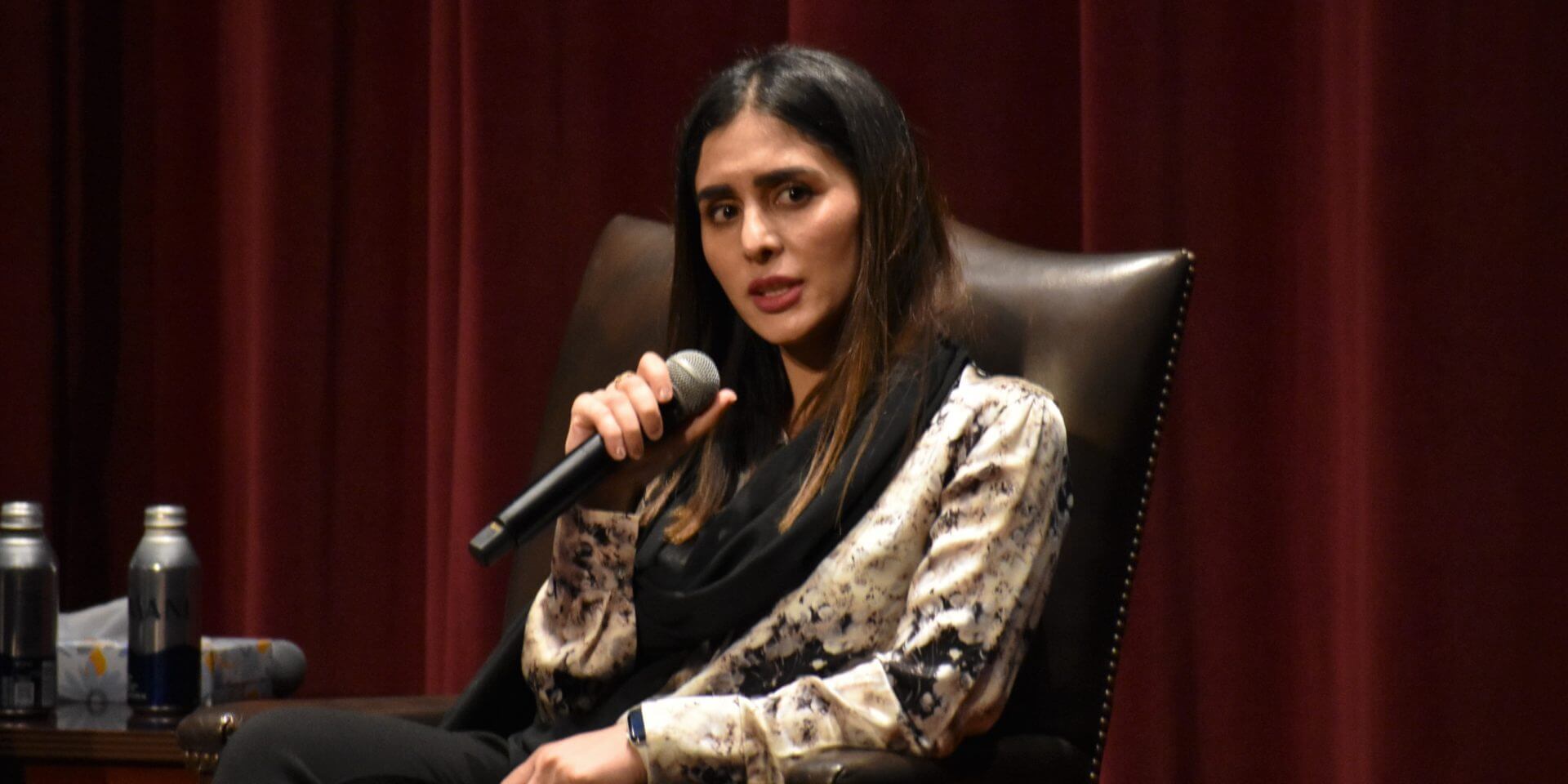
Crystal Bayat, a women’s rights advocate from Afghanistan, spoke of her experiences fleeing the Taliban invasion of Kabul. Photo: Nick Nuccio
In the age of smartphones and social media, tragedies that occur on the other side of the globe are broadcast directly to our devices. Scenes of political instability and terrible strife can be seen floating around our Twitter or Instagram feeds. Technology has enabled us to be hyper aware of tragedies and injustices that occur anywhere with an internet connection. But can it help us come together and restore peace?
Two events sought to answer that question in the first ever Tech for Good Week, organized by USC Viterbi School of Engineering’s Director of New Initiatives Daniel Druhora and Professor Andrea Armani, Vice Dean of New Initiatives and Ray Irani Chair in Chemical Engineering and Materials Science. They envision this becoming an annual event that focuses on the power of engineering as a force for good in the world.
In the first event, on November 11, a panel of experts convened at the USC Michelson Hall as part of “CONNECTED: How Tech is Transforming Humanitarian Response.”
Four experts intimately involved in the Afghan crisis described the challenges and future of the complex humanitarian space in a discussion led by Professor Burcin Becerik-Gerber, chair of the Sonny Astani Department of Civil and Environmental Engineering. Becerik-Gerber co-founded the groundbreaking Viterbi course, Innovation in Engineering and Design for Global Challenges alongside Druhora, Brad Cracchiola, and Professor David Gerber.
On the panelists’ minds was the recent takeover of Kabul, Afghanistan by the Taliban. The ensuing rush to evacuate endangered residents and the scramble to provide food, money, and support to those left behind presented unique challenges to humanitarian organizations on the ground.
Roya Mahboob, founder of the Afghan Girls Robotics Team, recalled the evacuation of 10 high-school age girls who worked with her organization. Desperate to place them on an international flight, her team applied for travel visas through traditional means, but the effort was in vain.
“The one thing I found was that privately-funded Americans volunteered to make these evacuations happen,” said Mahboob, named one of Time Magazine’s 100 Most Influential People in the World in 2013. “But the government was not helpful.”
The panelists agreed that individualized, grassroots movements powered by social media and armed with modern technology were instrumental in creating immediate effects.
“What we saw this summer is the power of social media and digital communication technologies to change how we can shape events around the world,” said MJ Cantrell, a veteran of the war in Afghanistan. Cantrell participated in a grassroots, virtual movement to evacuate Kabul citizens after the city fell, coined as “Digital Dunkirk” — a modern day echo of the 1940 evacuation of 338,226 Allied soldiers from the beaches and harbor of Dunkirk during the Nazi invasion of France.
“For ten years I’ve worked in the non-profit sector, and we are constantly trying to mobilize people,” said Luca Bucken, senior partnerships manager at Speetar, a telehealth provider specializing in crisis zones. “In this moment, I just needed to post an Instagram story saying, for example, ‘I need to contact the French government,’ and my inbox would be full of messages.”
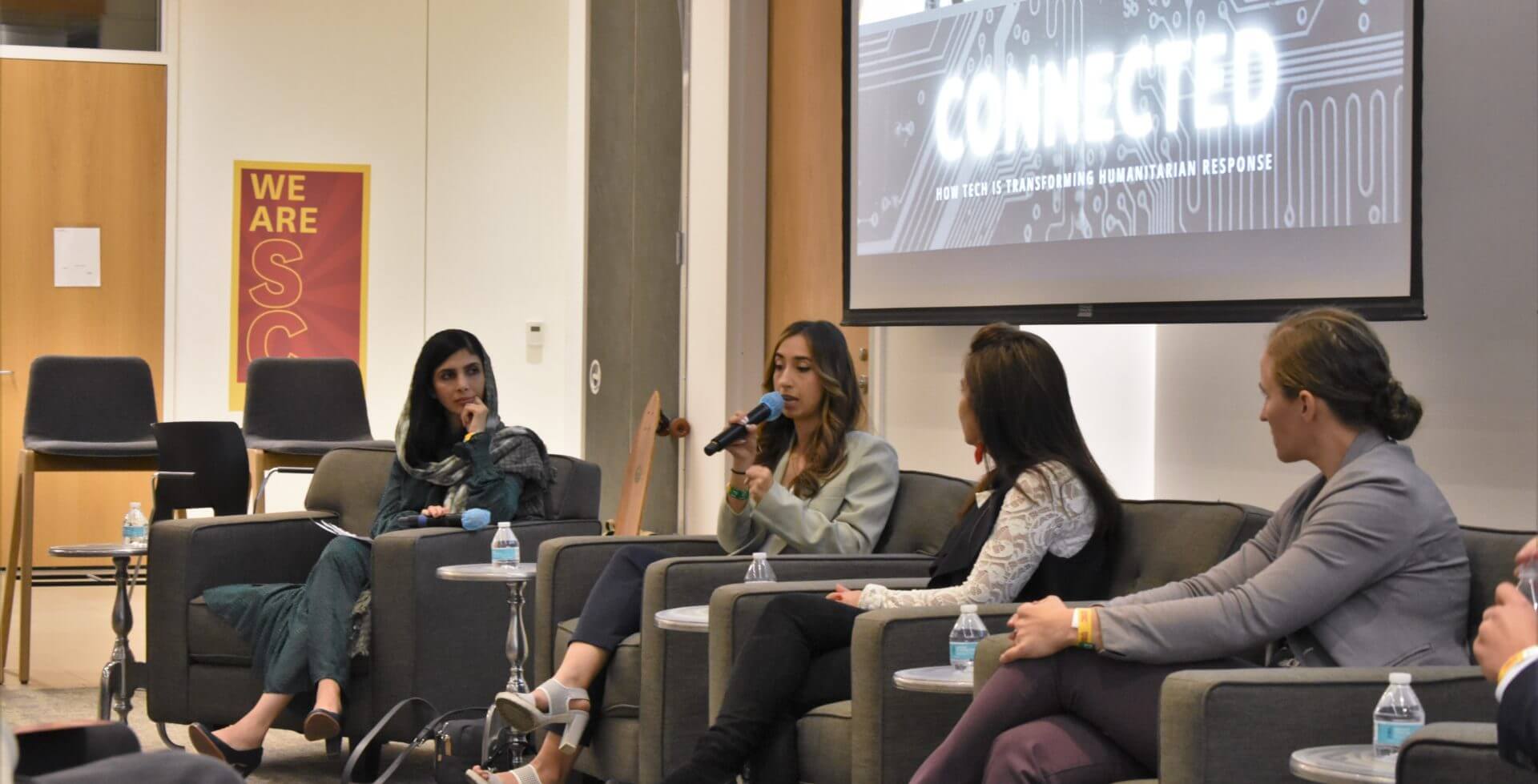
At “Connected”, Humanitarian leaders discussed how technology can be adapted to human rights crises. From left: Roya Mahboob, Sophia Mahfooz, Professor Burcin Becerik-Gerber, MJ Cantrell. Photo: Nick Nuccio.
The panelists observed that local non-governmental organizations tended to be on the frontlines and have more advanced technology than large non-profits or governments. Despite this advantage, they are relatively underfunded.
“There’s a fundamental imbalance between where resources go and how they are applied. Only about 4.5% of global humanitarian funding goes to local organizations,” said Bucken. “That’s nothing in the grand scheme of things. We’re setting them up to fail.”
Sophia Mahfooz, the former CEO of Girls in Tech and founder of Afghan Innovation, a non-profit whose goal is to centralize and streamline Afghan humanitarian efforts, made the case for social impact movements to move away from government bureaucracy and towards innovative, startup-like models.
“Playing into the bureaucracy leads to inefficiency and delay,” she explained. “Once you’re in the network, you are no longer thinking outside of the box.”
“If we can create excitement and opportunity and galvanize people to say, ‘Yes, I can solve this problem. And I can do it better and more cost-efficiently,’ governments will have to look at that and the UN will have to respond to that. That’s where change can really be made.”
The next day, contemporary humanitarian issues were explored at “UNSILENCED: A Call to Action.” At this Visions & Voices event at USC’s Norris Theatre, social entrepreneur Hila Azadzoy moderated a conversation with Crystal Bayat, a human rights activist from Afghanistan, and Yusra Mardini, a member of the refugee Olympic team and United Nations High Commissioner for Refugees (UNHCR) Goodwill Ambassador.
Mardini, a Syrian swimmer who competed in the 2016 and 2020 Olympic games, has already seen her abilities put to a deadly trial. In 2015, she boarded a tiny dinghy with 20 refugees seeking asylum in Europe. After the motor stopped working and the dinghy began to take on water in the Aegean Sea, Yusra Mardini, her sister, Sarah, and two other people acted as human propellers, pushing and pulling the boat for over three hours until they reached the Greek isle of Lesvos.
Mardini spoke about her journey to Germany, and how she learned to reclaim what a refugee meant.
“The image of what a refugee is very wrong in the world,” she said. “Being a refugee does not mean you are not educated. Being a refugee does not mean you come from nothing. The most hurtful things that people said to me in Europe were crazy questions like, ‘Did you have a TV in Syria?’”
“I’m talking about my story right now,” she continued. “But there are so many refugees not talking about their story, because they are afraid of not being accepted.”
“But we are normal. We had education, and it was always sunny. I was very happy in my country.”
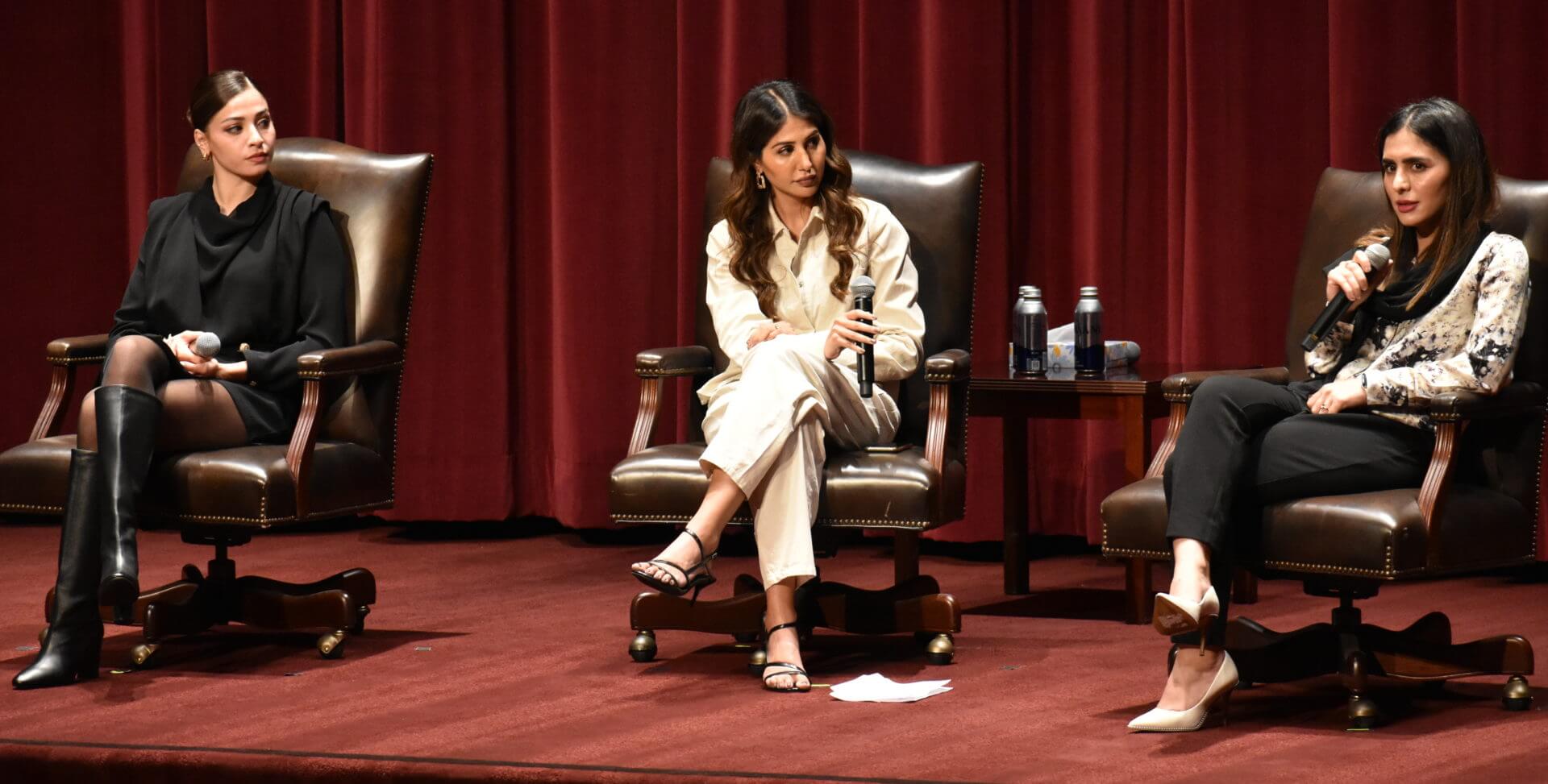
At “Unsilenced,” refugee advocates discussed how to best support the people they left behind. From left: Yusra Mardini, Hila Azadzoy, and Crystal Bayat. Photo: Nick Nuccio
Bayat gave a heart-wrenching testimony of protesting in Taliban-invaded Afghanistan. She hoped to avoid the mistakes of the previous generation of women, who stayed largely silent when the Taliban first invaded Afghanistan in 1997.
“On the 17th of August, seven girls and I came out of our homes and asked for our rights,” she said. “My mom kept silent in 1997, and she became a housewife for six years. I remembered her telling me her bitter story, and I did not want to experience it again.”
Both panelists agreed that although there was an outpouring of support after the fall of Kabul, there is still a massive need for aid.
“Each individual can save Afghan lives,” said Bayat. “We can work with neighboring countries to give them food. We can launch online classes, so women don’t feel like they are deprived of education.”
This may seem like a difficult endeavor, but Bayat does not think so.
“Nothing is impossible in this world. We can all come together and make it possible.”
Published on December 8th, 2021
Last updated on December 9th, 2021




